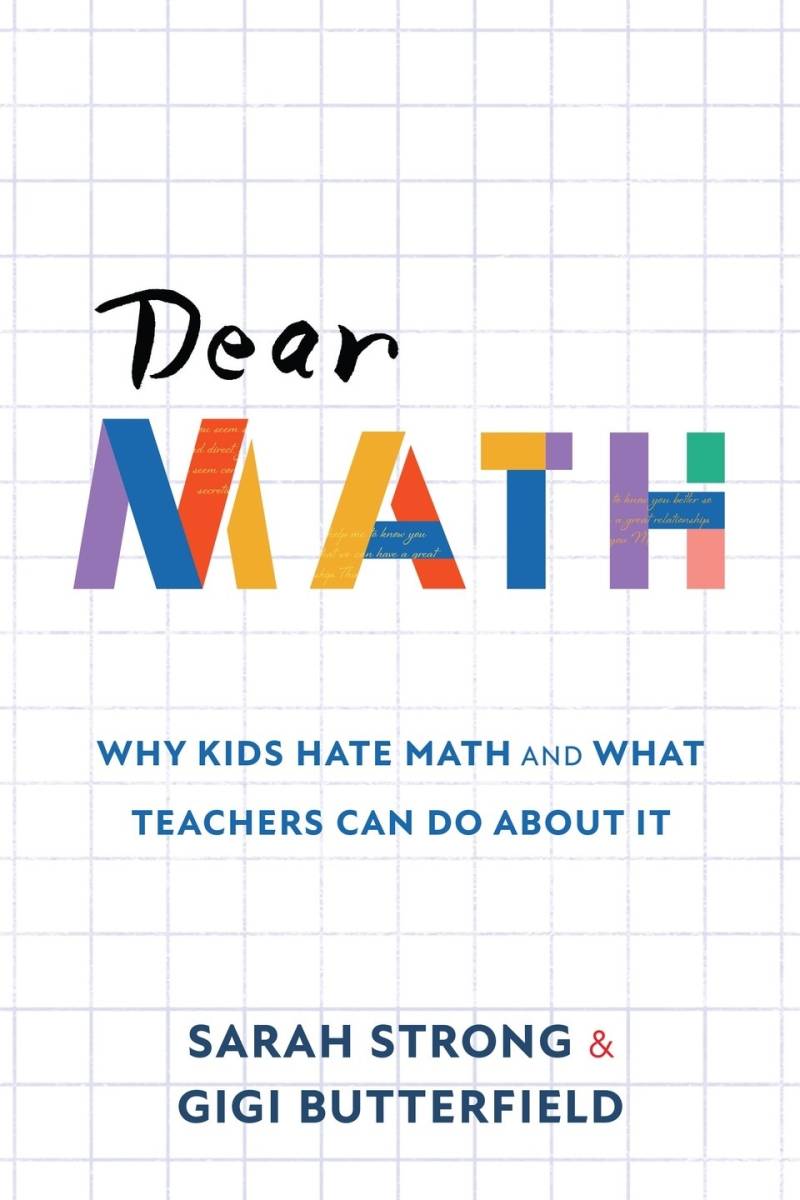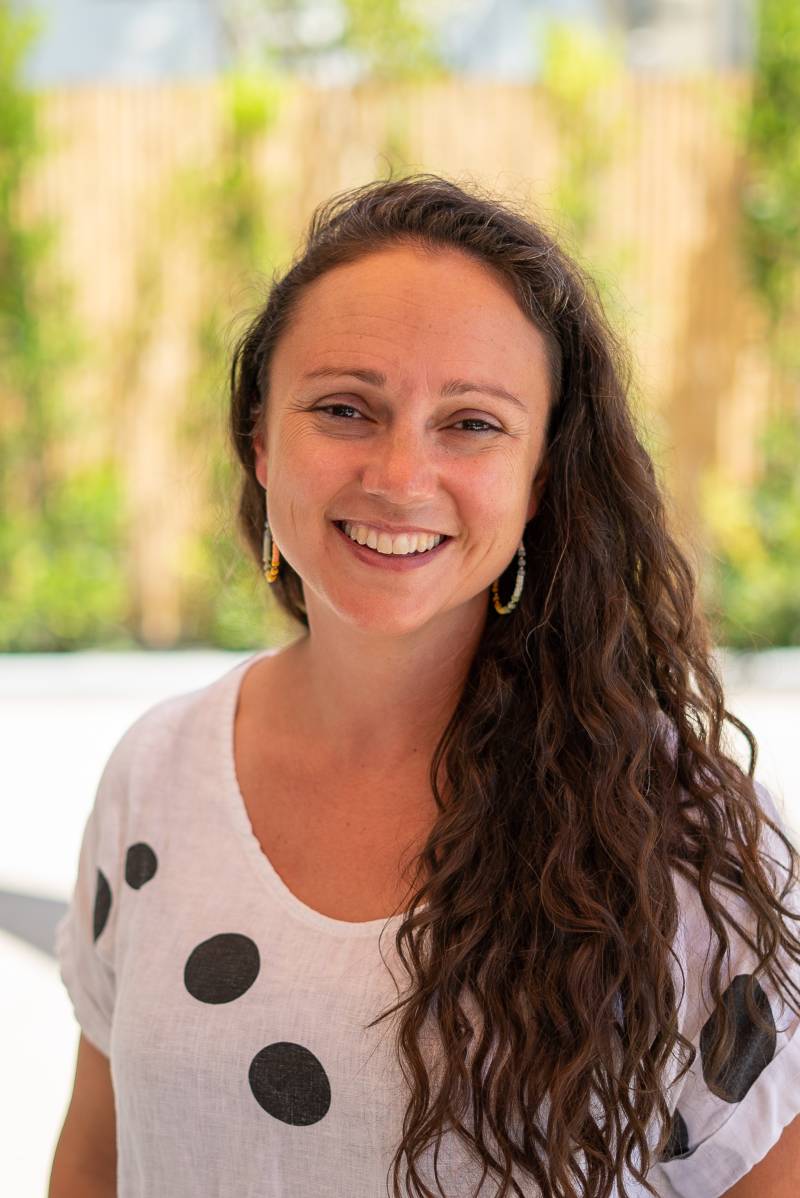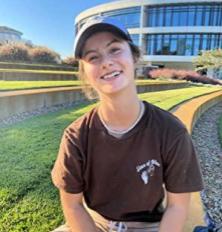Excerpted from Dear Math: Why Kids Hate Math And What Teachers Can Do About It by Sarah Strong and Gigi Butterfield. Published by Times 10 Publications.
The importance of mathematical identity work
As learning theorist Yrjo Engestrom (1995) stated, “Identity work is never ‘done,’ it is always ongoing. Although a person’s identity is not determinable, neither is the meaning-making involved in identity work entirely free but, instead, is mediated by the discourse and practices of people’s communal social activity systems.” Because of this, we create space for students to share the stories that formed them and for the possibility of evolution in those stories over the course of the year. The possibility of evolving is related to the idea of a growth mindset, and, while it’s not the only point, believing that success can be found is an important step. Even day to day, the ways students feel about themselves as mathematicians can shift dramatically, but we can design a class where they can flourish when we tune our eyes and ears to their stories and ways of being in a math class.
“Dear Math, I have hated math ever since third grade; it’s annoying and unenjoyable. It used to be that I liked math, but that all changed in third grade when we had to learn our times tables, and I was always stressing. I like normal multiplication, the kind where you can ACTUALLY take your time, but not this.” — Andrea, seventh grade
Overcoming dread in the classroom
 Isabela and I met when I was her teacher in her freshman year. As a student, she seemed driven and justice-oriented. As a mathematician, she was brilliant at organizing information and she asked many questions, yet she lacked confidence. One of the first times we met, she told me that she had test anxiety, and as we worked together, I noticed that her anxiety was pervasive in her work. She would rush to an answer, second-guess her thinking, and then her brain would “shut off” (her words), and her emotions would take over. In her sophomore year, she wrote a Dear Math letter in which she unpacked this anxiety and the resulting feeling of dread that was now a part of her heading to math class. Her letter that year read:
Isabela and I met when I was her teacher in her freshman year. As a student, she seemed driven and justice-oriented. As a mathematician, she was brilliant at organizing information and she asked many questions, yet she lacked confidence. One of the first times we met, she told me that she had test anxiety, and as we worked together, I noticed that her anxiety was pervasive in her work. She would rush to an answer, second-guess her thinking, and then her brain would “shut off” (her words), and her emotions would take over. In her sophomore year, she wrote a Dear Math letter in which she unpacked this anxiety and the resulting feeling of dread that was now a part of her heading to math class. Her letter that year read:
“I really like you. But you don’t come naturally to me. I have to work extra hard to understand and really conceptualize what you have to offer. There have been times where I have felt discouraged, frustrated, and exasperated, especially on tests, which is where I believe I can never fully express all of the things I know in a way that helps me be successful.”



 Sarah Strong
Sarah Strong Gigi Butterfield is currently a freshman at Loyola Marymount University and attended Gary and Jeri-Ann Jacobs High Tech High in San Diego, CA for High School. She is recovering from her fraudulent fondness of mathematics and thrives in situations where she can explore math deeply and ask thoughtful questions of her peers and her teachers. She attended project based learning schools from age of five to eighteen, and is passionate about how PBL plays an integral role in revitalizing heavily antiquated math pedagogies. In HS, she was captain of the basketball team, head of student ambassadors, leader of model united nations, member of student senate, and is still a Jeopardy fanatic hoping to go into comedy writing in her future. No better start to a comedy career than with a dissertation on the reimagining of math education!
Gigi Butterfield is currently a freshman at Loyola Marymount University and attended Gary and Jeri-Ann Jacobs High Tech High in San Diego, CA for High School. She is recovering from her fraudulent fondness of mathematics and thrives in situations where she can explore math deeply and ask thoughtful questions of her peers and her teachers. She attended project based learning schools from age of five to eighteen, and is passionate about how PBL plays an integral role in revitalizing heavily antiquated math pedagogies. In HS, she was captain of the basketball team, head of student ambassadors, leader of model united nations, member of student senate, and is still a Jeopardy fanatic hoping to go into comedy writing in her future. No better start to a comedy career than with a dissertation on the reimagining of math education!